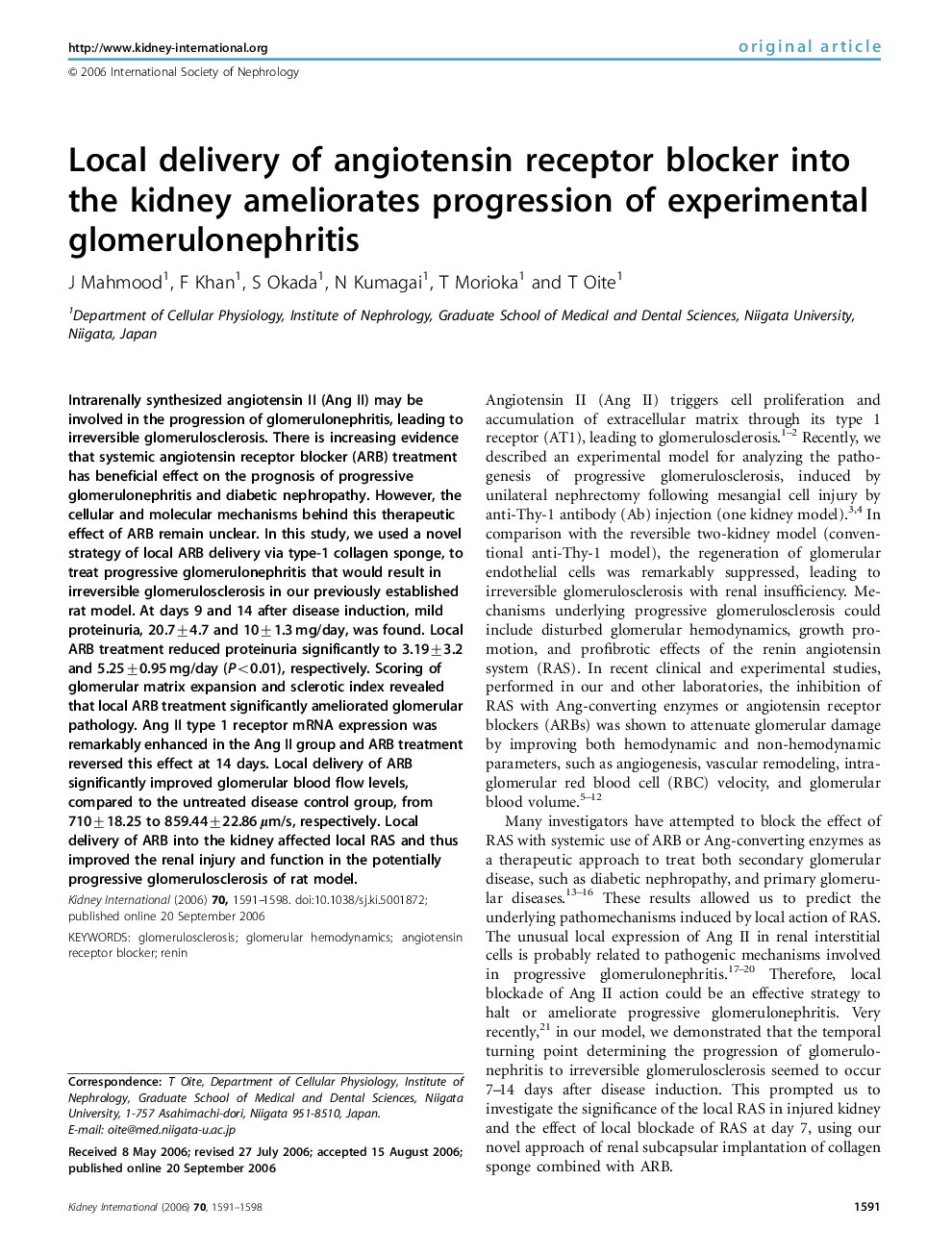| Article ID | Journal | Published Year | Pages | File Type |
|---|---|---|---|---|
| 3889428 | Kidney International | 2006 | 8 Pages |
Intrarenally synthesized angiotensin II (Ang II) may be involved in the progression of glomerulonephritis, leading to irreversible glomerulosclerosis. There is increasing evidence that systemic angiotensin receptor blocker (ARB) treatment has beneficial effect on the prognosis of progressive glomerulonephritis and diabetic nephropathy. However, the cellular and molecular mechanisms behind this therapeutic effect of ARB remain unclear. In this study, we used a novel strategy of local ARB delivery via type-1 collagen sponge, to treat progressive glomerulonephritis that would result in irreversible glomerulosclerosis in our previously established rat model. At days 9 and 14 after disease induction, mild proteinuria, 20.7±4.7 and 10±1.3 mg/day, was found. Local ARB treatment reduced proteinuria significantly to 3.19±3.2 and 5.25±0.95 mg/day (P<0.01), respectively. Scoring of glomerular matrix expansion and sclerotic index revealed that local ARB treatment significantly ameliorated glomerular pathology. Ang II type 1 receptor mRNA expression was remarkably enhanced in the Ang II group and ARB treatment reversed this effect at 14 days. Local delivery of ARB significantly improved glomerular blood flow levels, compared to the untreated disease control group, from 710±18.25 to 859.44±22.86 μm/s, respectively. Local delivery of ARB into the kidney affected local RAS and thus improved the renal injury and function in the potentially progressive glomerulosclerosis of rat model.
